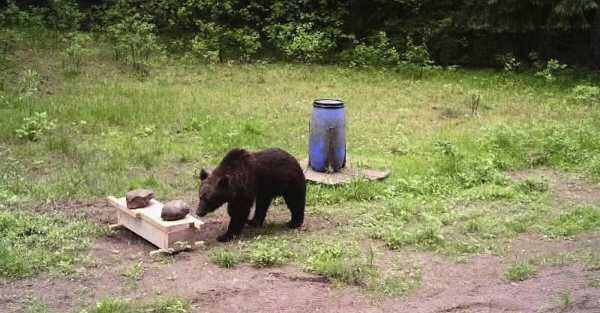
A young female bear caused a storm of emotions when she emerged from the forest and found herself in the green suburbs of the Lithuanian capital.
For two days, the brown bear roamed the streets of Vilnius, crossing roads and exploring backyards – constantly watched by onlookers with smartphones and then drones.
The government soon issued a permit to shoot the bear.
The decision angered Lithuanian hunters, who, realizing that there were only a small number of protected species left in the country, refused to comply with the order.
The Lithuanian Association of Hunters and Fishermen expressed its surprise at the government's order.
Association administrator Ramute Yuknite told The Associated Press on Wednesday that the bear was a beautiful young female, about 2 years old, and did not deserve to be shot.
“She was scared, but she wasn't aggressive. She just didn't know how to leave the city, but she didn't do anything harmful,” she added.
The organization monitors the bears' movements and believes there are only five to ten bears in the Baltic country, but the exact number remains unknown.
The incident began on Saturday when a bear entered the capital. It was the first time in many years that a bear had entered the city and it became a national sensation. The animal came within two to three miles of the city centre.
Concerns over the bear shooting permit have left Lithuanian authorities on the defensive.
Deputy Environment Minister Ramūnas Krugelis said the permit for the shoot was issued solely as a precautionary measure in case the bear became a threat, Lithuanian broadcaster LRT reported.
Hunters suggested a more humane option: sedation, tracking and relocation.
When a dispute about the bear's fate broke out, she herself decided to leave the city.
Mr Juknyte said the bear was caught on camera on Wednesday casually wandering through a forest about 40 miles from Vilnius and eating corn.
Brown bears are indigenous to the region and were once common. Their numbers were greatly reduced in Lithuania in the 19th century due to hunting and habitat loss.
In recent years, they have begun to reappear in small numbers, usually migrating from neighboring countries such as Latvia and Belarus, where small bear populations still exist.
The bears are protected under Lithuanian and EU law as they are considered a rare and vulnerable species in the region.
Sourse: breakingnews.ie






